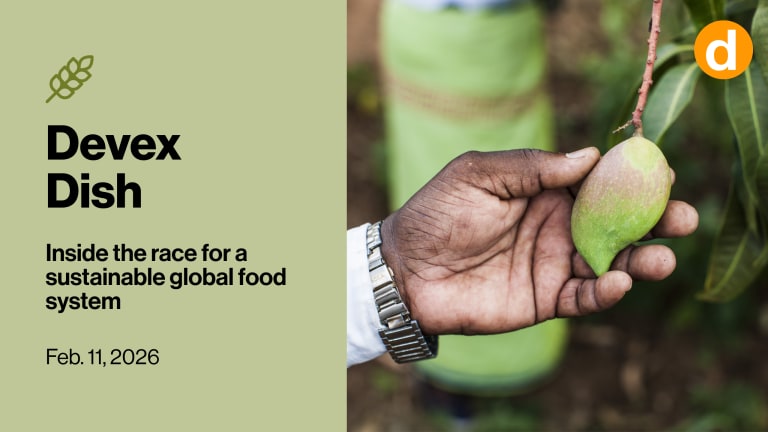
CANBERRA — What is the actual impact of an intensified development focus on rural women? It was that question which drove Sonia Akter, assistant dean of research with Singapore’s Lee Kuan Yew School of Public Policy, to explore whether women’s empowerment leads to better agricultural and farming technology adoption in Bangladesh, India, Myanmar, Philippines, and Vietnam, such as adopting high yield rice varieties.
The level of empowerment of women in 12,000 farming households was determined on a scale of zero to 100 based on five domains associated with the Women’s Empowerment in Agriculture Index — production, income, resources, time, and leadership.
At the 2018 Australasia Agricultural and Resource Economic Society conference, held in Adelaide last month, Akter presenting findings providing scientific evidence that a focus on empowering women leads to more progressive farmers and greater economic and social opportunities for households.
Understanding the study
As part of the study, a gender-inclusive sampling technique was applied to draw 12,000 sample households from 70 districts and 1,165 villages within the five countries. The households participated in a quantitative survey focused on the nature of women’s empowerment in the five key areas of focus.
See more related topics:
► How should we measure 'women's economic empowerment'?
► Opinion: We need to involve more women in the agricultural sciences. Here's how.
► Opinion: Addressing the double burden of work for rural women
► Opinion: How women can transform African agriculture — and the economy
Across the countries, there were common patterns in dividing the labor of men and women. Men were primarily responsible for tasks including seedbed and land preparation, fertilizer spraying and pesticide application. Shared tasks included transplanting, weeding, and manual harvesting. And commonly, women were solely responsible for the preparation of food for hired laborers.
But decision-making, and not allocation of duties, was the focus of the study.
Using a zero to 100 scale, households were asked how much of a role women played in a variety of decisions within the household.
“If the decision-making power is 100, they were the sole decision-maker,” Akter told Devex. “If it is 50, it is a joint decision. If it is 70, then women played a greater role than men. The results were relative to their male counterpart in the household.”
The results showed that, for the countries combined, women only had 30 percent empowerment as opposed to men.
“It’s not equal,” Akter said. “Men are still dominating, making most of the decisions over most of the resources — and they still make most of the decisions even for how much time women allocate to work versus leisure.”
But decision-making power on the choice of rice farming varied across and within countries, with the Philippines showing the highest amount of women’s involvement in decision-making. Here, all rice farming decisions are jointly made by husbands and wives and women play an important role in the community and agricultural groups. In Myanmar, the opposite is true as men dominate community decisions.
Why women are making innovative choices
The study was not only able to directly link empowerment with agricultural and household decision-making, but the ability for empowered women to influence the decision to purchase varieties of seed that would lead to higher yield, increasing household income.
The factors leading to empowerment within a household were not studied — purely the end result. But a key in enabling women to choose innovative approaches in agriculture was identified through factors considered “indirect benefits” within the research. Empowered women had access to more information, including technology, enabling them to make a more informed decision on what should happen in the field to improve yield and their economic outcome.
“Then the question is what happens when households adopt high yield varieties,” Akter said. “Does it have a ripple effect or real consequence for their welfare? Implicit and explicit evidence we have says households that adopt high yield varieties are more likely to receive high yield outputs.”
Akter explained that by increasing productivity, market participation, and household income, there will additional flow-on effects to the household. The households could access food with better nutrition.
“If we go back to where we started with women’s empowerment, then we do see a very important impact on houses with security,” she said.
Compared to men, Akter explained, women were more concerned about household welfare. “At the end of the day, women are more likely to be responsible for putting food on the table,” she said. “They are the ones responsible to source household food. Men are in the field growing food, but even if men fail to grow it, women are responsible for putting food on the table — for their children and for the family.”
Men were more likely to spend money on their private good — smoking, alcohol consumption or gambling or buying a motorbike.
“If you use that theory of how responsibilities are allocated and how men and women feel differently about household responsibilities, it seems like if women are in power they can make the right decisions for their household,” Akter said. “They want to grow more food. They know that if they grow more food their household is more secure, they can sell more at the markets and they can buy more nutritious food from the market and spend more of the household income in health, education and more.”
Promoting this research
Akter says the findings should influence development policy and program design.
“This research provides scientific evidence for why we are right to focus more on women and why it makes economic sense,” she said. “Women at the end will generate positive outcomes for society and communities. There is not much economic argument at this stage. We know we need to do this for social justice, but to show economic and community benefits is a win-win situation.”








